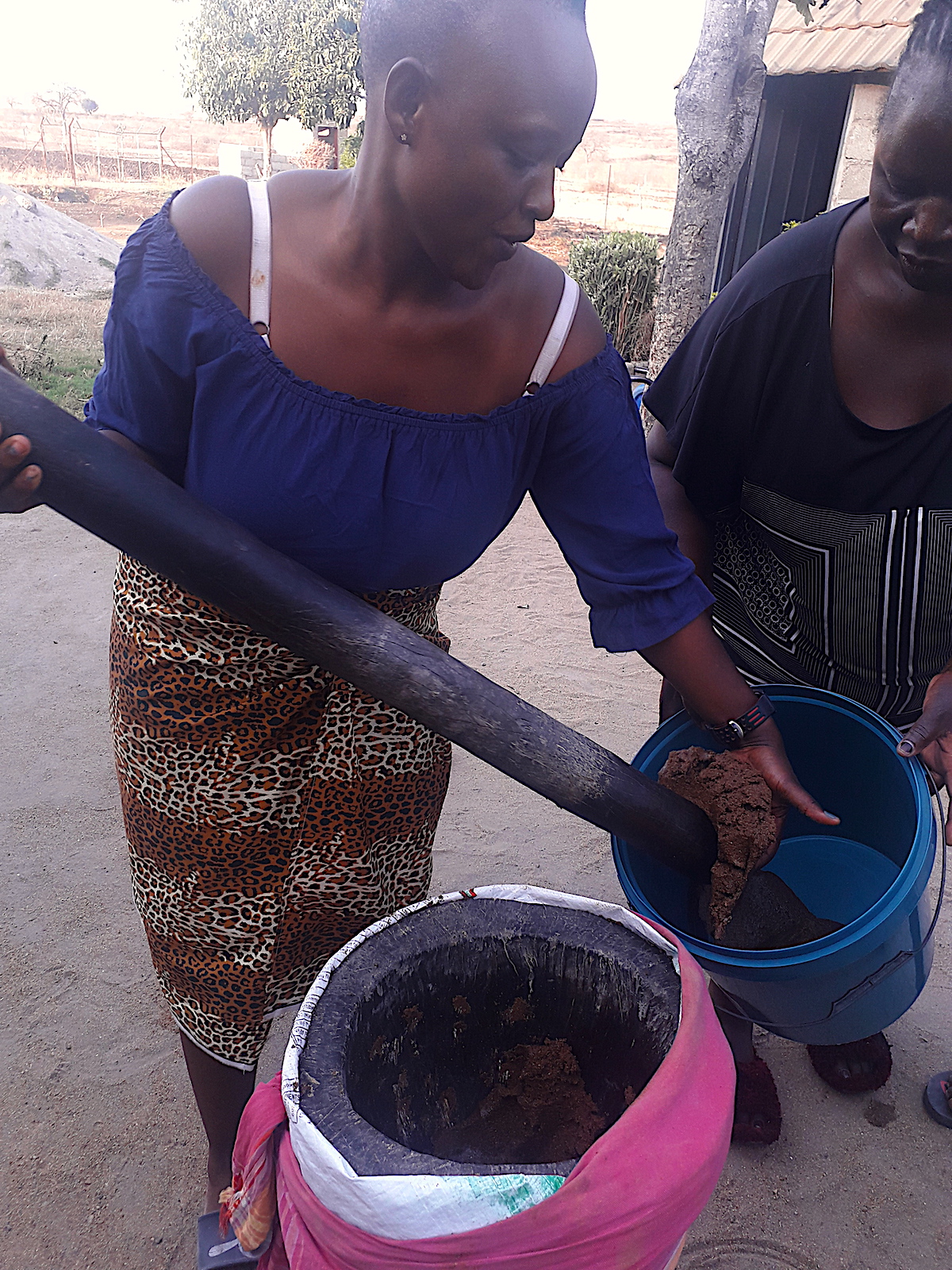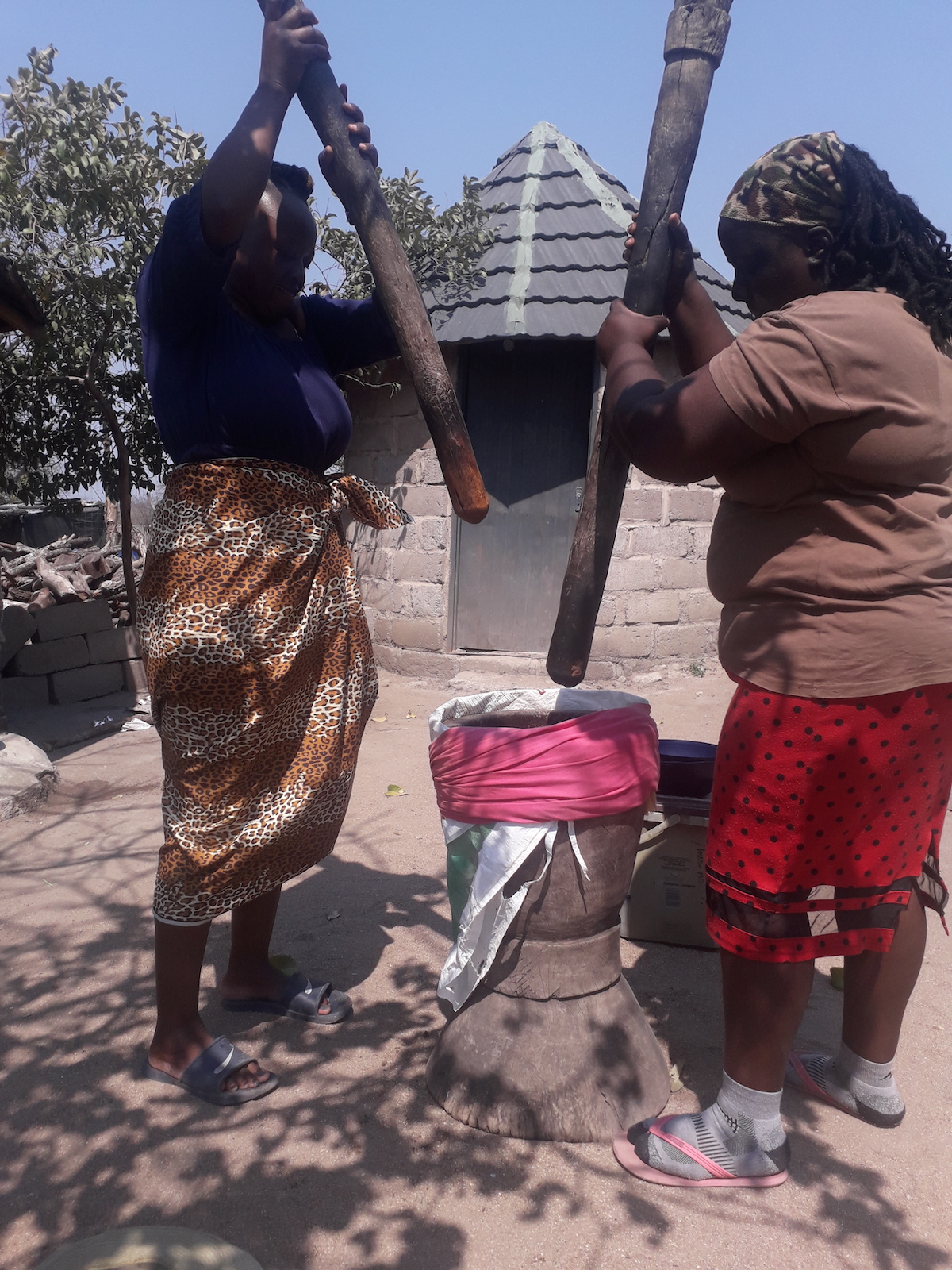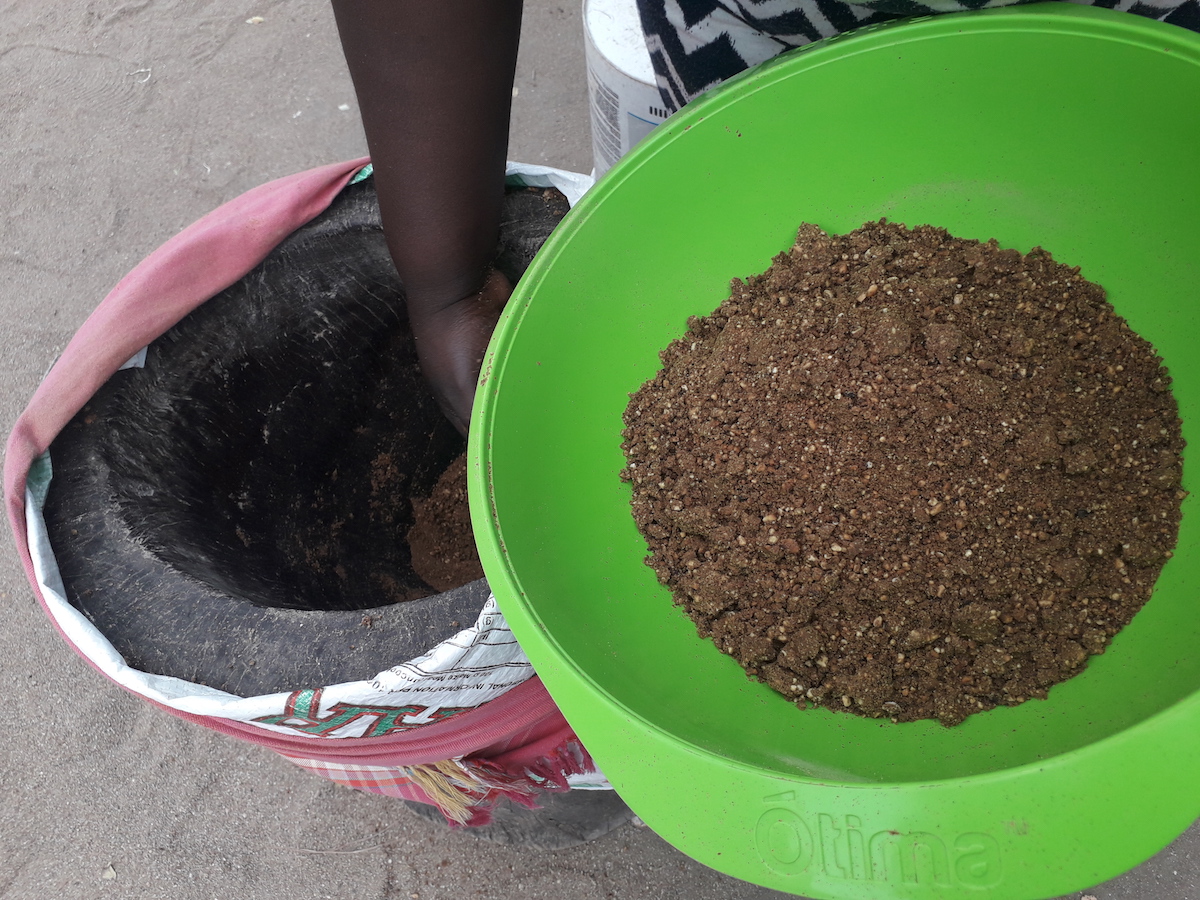Food activist Praising Mabunda on preserving heritage
By promoting local products and recipes, such as xigugu, Praising Mabunda is quickly becoming one of the most important food activists in South Africa. She talks to us about this traditional treat, how to use it and how’s she working towards uplifting the community through her work.
Can you start by telling us a little about yourself and your childhood? Was food and cooking a big part of your life and family life?
I grew up in Mpumalanga, between my mom’s place at Cork and my grandparents at Utah (Manyeleti). Growing up, my mom loved cooking. She loved cooking recipes she learned to cook when she worked as a domestic worker. Very delicious restaurant-like food. She is famous in the family for her baking. She loved cooking and baking, inviting families, neighbours or friends for lunch or dinner and she always had an excuse for parties and gatherings. Then there’s my grandmother, Rose Ndlovu, my queen (may her soul continue to rest in peace). I’d visit my grandmother every day for seriously delicious traditional food. I always knew there will be morogo, xiritsa, xigugu, tihove, mintonga in xiritsa, xinkhwa xa swifaki. I feel blessed she gave me her recipes weeks before she passed on. I enjoy cooking for my family and friends, I like inventing and trying new recipes. I cook mostly for my son; he seems to enjoy my delicious inventions. I am still based in Mpumalanga, near the Paul Kruger gate route after Hazyview.

Can you tell us about your xigugu business? What inspired you to start it?
I started the xigugu business for two reasons: the low employment rate in our country, mostly in villages like mine. I’m encouraging people, especially young people, to be more involved in our heritage, learning to accumulate money from the labour of our hands and from our resources. I am currently working more with the elderly, but if more young people are involved, our heritage won’t fade away. I operate as a contact person, promoting traditional products such as xigugu and handwork. The second reason is to introduce, promote and share our delicious traditional foods, beverages, herbs and medicines with the world. People are responding very positively to xigugu. I have been receiving a lot of support from the public. Chef Adele Stiehler – van der Westhuizen, managing director at the Prue Leith Culinary Institute in Centurion recently purchased a batch. Inspired by taste, texture and traditions, the students created xigugu ice-cream sandwiches, which appeared on the school restaurant’s Valentine’s Day menu this year.
Can you tell us about your products?
Xigugu is a traditional snack made from corn and peanuts, mixed together using a tshuri ni musi (pestle and mortar). It takes hours, sometimes days to make. It is often offered as a special gift and a symbol of love. It’s enjoyed by everyone and it doesn’t expire. It’s a very delicious and smooth snack.
For those that don’t know, can you tell us about xigugu and describe how it tastes?
Xigugu is a dark, glossy, subtly sweet, salty, smoky, buttery blend of roasted corn and peanuts. It might be compared to salted caramel or peanut butter fudge, but that’s not entirely accurate. Xigugu is its own epicurean experience, as Anna would say.
What makes xigugu so special?
Xigugu is often a literal labour of love. It plays an important role in our ceremonial customs such as malovolo (bridewealth) negotiations. Once an agreement is reached, the xigugu accompanies the bride from her parents’ home into her groom’s clan as the couple starts their new lives together. Xigugu represents the bride’s hopes for a sweet life, but also her recognition that hard work goes into maintaining a successful relationship.
How long does it take to prepare a batch? What does the process involve?
After the harvesting and drying of corn and peanuts, making xigugu requires hours of roasting the corn and peanuts. They are then repeatedly pounded and sifted separately until soft, then mixed. The mixed ingredients are then pounded together so they form a dark, glossy blend. You will need at least five women and two days to make 20 litres.

What are some of your favourite ways to eat xigugu, or to include it in recipes?
Normally I’d enjoy xigugu on its own as a snack, especially when I have important visitors – you offer them. But ever since chef Adele and the students created xigugu ice-cream sandwiches, I now eat it with anything, including plain ice cream or yoghurt, or baked. Nokwanda Mosala (daughter of Mr Mojaki Mosala) recently purchased xigugu, she is a great baker and she has been working tirelessly to come up with delicious bakes – this has inspired me to also try, but my baking is not that perfect. I add it to any dessert, the taste is magical every time.
We've heard you’re also an activist for heritage food. Can you tell us about this work that you do?
Yes, the sad truth is that things are getting easier and easier these days, with fast food sold everywhere – we are slowly doing away with our traditional “healthy” foods, herbs, medications, beverages, etc. My goal is to remind people of our important resources, to introduce, preserve and promote our heritage. With the low employment rate in South Africa, we are also blessed with resources and talents that we need to share with the world and also make a profit from them. That’s where I come in.

Why is it so important to preserve heritage dishes? What are some of your favourite heritage dishes?
Heritage dishes are wholesome dishes, that’s one of the reasons it’s very important to preserve them. I also believe that our diet these days is the cause of most sicknesses and early deaths. My favourite heritage dishes include:
Xiritsa – crushed peanuts cooked with fried onions and seasoning.
Xigugu – as explained above.
Nkaka waku tshakata – green veggies known to nourish the body after giving birth.
What else are you busy with at the moment? Do you have any future plans you’d like to share?
I am currently working on promoting xigugu, and a few traditional recipes for summer. I have also been visiting different villages to discover and learn more about our heritage. I am discovering more about our healthy foods, drinks, medicine, herbs, crafts, etc. Future plans are to bring these products to the market. To promote our heritage, bring back healthy living and for our communities’ financial gain.
Where and how can people order from you?
Xigugu and the other traditional products can be ordered from me by email.



Comments